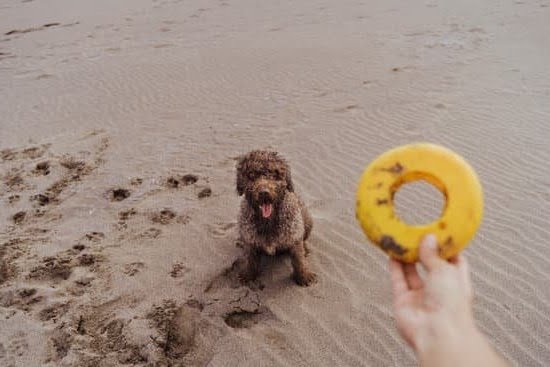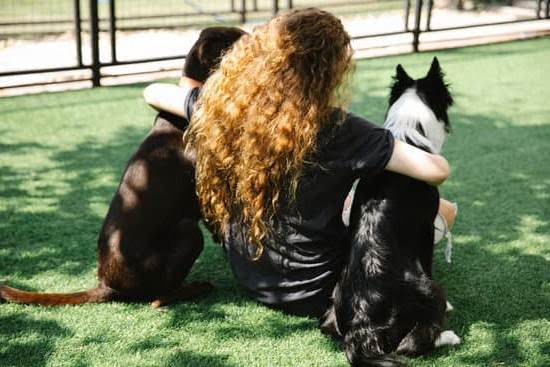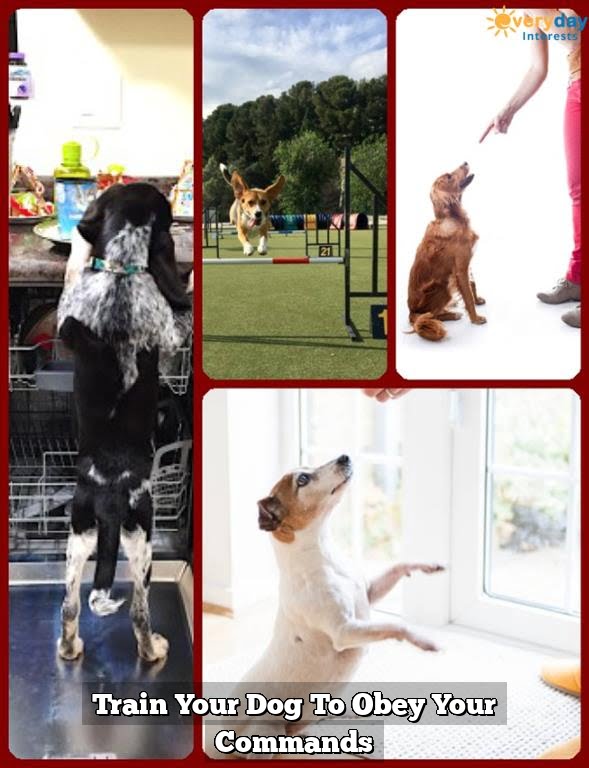Are you interested in learning how to train your dog for field trials? Field trials are competitive events that test a dog’s hunting and retrieving abilities, as well as their obedience and training. In this article, we will guide you through the steps of preparing your dog for field trials, from choosing the right breed to celebrating their achievements.
Field trials are a unique opportunity for dogs to showcase their natural instincts and skills in a controlled environment. Whether you have a Labrador Retriever, Golden Retriever, or another sporting breed, understanding the fundamentals of field trials is essential for success. Training your dog for field trials requires dedication, patience, and knowledge of specialized techniques.
We will discuss the basic obedience training that forms the foundation for field trial success, as well as advanced techniques for refining your dog’s abilities. Additionally, we will provide tips on selecting the right equipment and gear for training sessions and competition. By the end of this article, you will be equipped with the knowledge and strategies needed to prepare your dog for a successful field trial experience.
Choosing the Right Dog Breed for Field Trials
When choosing the right dog breed for field trials, it is important to select a breed that has the natural instincts and abilities required for this type of competition. Some popular breeds for field trials include Labrador Retrievers, Golden Retrievers, Springer Spaniels, and Pointers. These breeds are known for their intelligence, strong work ethic, and natural hunting abilities, making them well-suited for field trial training.
Labrador Retrievers are often favored for their athleticism and versatility, as well as their eagerness to please their owners. They excel in retrieving and marking tasks which are crucial in field trials. On the other hand, Pointers are known for their keen sense of smell and exceptional pointing ability, making them ideal for upland bird hunting trials.
When selecting a dog breed for field trials, it is essential to consider the specific requirements of the competitions you plan to enter. Each breed has its own strengths and weaknesses, so it is important to choose a breed that aligns with the type of hunting or retrieving tasks involved in your desired field trial events.
| Dog Breed | Main Characteristics |
|---|---|
| Labrador Retriever | Athleticism, Versatility, Eagerness to Please |
| Pointer | Keen Sense of Smell, Exceptional Pointing Ability |
| Springer Spaniel | Intelligent, Energetic, Eager to Work |
Basic Obedience Training for Field Trials
When it comes to preparing your dog for field trials, basic obedience training is crucial. This foundation sets the stage for more advanced training techniques and ensures that your dog understands and complies with your commands in a variety of outdoor settings. Here are some key aspects to focus on when conducting basic obedience training for field trials:
- Focus and Attention: Teaching your dog to maintain focus and attention on you, despite distractions, is essential for success in field trials. Incorporate exercises that require your dog to maintain eye contact and ignore external stimuli.
- Heel Command: The heel command is important for keeping your dog by your side during field trials. Practice walking with your dog on a leash, using the “heel” command to keep them in the proper position.
- Sit, Stay, and Come: These are fundamental commands that are essential for control during field trials. Your dog should be able to sit and stay in place until released, as well as come when called reliably.
Consistency and positive reinforcement are key when conducting basic obedience training for field trials. By establishing a strong foundation of obedience, you can build upon these skills as you progress to more advanced training techniques in preparation for field trial competitions.
Remember that each dog progresses at its own pace, so be patient and understanding as you work with your canine companion. With dedication and effective training methods, you can set the stage for a successful journey into the world of field trials with your dog.
Introduction to Retrieving and Marking
Retrieving and marking are crucial skills for dogs participating in field trials. These exercises test a dog’s ability to mark the location of a fallen bird or dummy, as well as retrieve it back to their handler. In this section, we will explore the importance of these skills in field trials and provide an overview of how to introduce retrieving and marking to your dog.
Retrieving is a natural behavior for many dog breeds, especially those that were originally bred for hunting or retrieving game. However, training a dog to retrieve on command and mark the location of a fallen object requires dedicated practice and consistency. This section will cover the basic principles of teaching your dog to retrieve and mark, including using positive reinforcement, proper handling techniques, and building their confidence in the field.
In addition to teaching your dog the basic commands for retrieving and marking, it’s important to gradually increase the level of difficulty in training scenarios. This can include practicing retrieves over varying distances, introducing distractions or obstacles in the environment, and simulating realistic hunting situations. By building a strong foundation in retrieving and marking, you can set your dog up for success in field trial competitions.
Advanced Training Techniques for Field Trials
After mastering the basic obedience training and introduction to retrieving and marking, it’s time to move on to more advanced techniques to prepare your dog for field trials. These techniques will help your dog become more skilled and confident in the competition setting. Here are some advanced training techniques for field trials:
- Blind retrieves: Teach your dog to retrieve objects that they have not seen fall. This advanced skill requires a high level of trust and communication between you and your dog.
- Multiple marks: Train your dog to remember multiple locations where dummies or birds have fallen. This skill is essential in field trials where dogs are often required to retrieve several objects in a specific sequence.
- Handling drills: Practice teaching your dog directional commands such as “back,” “over,” and “here.” These commands will help guide your dog to the right spot for retrieving and marking, even at a distance.
As you progress with these advanced training techniques, it’s important to keep training sessions fun and engaging for your dog. Positive reinforcement, consistent practice, and patience will be key in helping your dog master these skills.
In addition to these advanced techniques, consider seeking guidance from experienced trainers or joining a local field trial club where you can learn from seasoned competitors. These opportunities can provide valuable insights and support as you continue training for field trials with your dog. With dedication and perseverance, you can help your canine companion reach their full potential as a successful field trial competitor.
Field Trial Equipment and Gear
Field trials for dogs require specific equipment and gear to ensure the safety and success of both the dog and the handler. Having the right tools can not only improve performance but also create a more enjoyable experience for both dog and handler.
Training Dummies
One essential piece of equipment for field trials is training dummies. These dummies come in various shapes, sizes, and materials, and are used to simulate retrieving game. It is important to choose dummies that closely resemble the type of game your dog will be retrieving in competition. Training dummies should also be durable to withstand repeated use.
Whistles and Lanyards
Whistles are crucial for communication with the dog during field trials. They are used to signal commands such as “sit,” “come,” or “retrieve.” Handlers often wear lanyards around their necks to keep whistles easily accessible at all times. It’s important to train your dog to respond to specific whistle commands during training sessions leading up to a competition.
Camouflage Clothing
During field trials, handlers often wear camouflage clothing to blend in with the natural environment. This helps minimize distractions for the dog and allows them to focus on the task at hand without being overly influenced by the handler’s presence. Camouflage clothing should be comfortable and suitable for various weather conditions.
First Aid Kit
A well-stocked first aid kit is essential for any outdoor activity, including field trials. Injuries can happen, so it’s important to be prepared with supplies such as bandages, antiseptic ointment, tweezers, and any necessary medications for both you and your dog. Being able to address minor injuries promptly can prevent them from becoming more serious issues that could affect your participation in upcoming competitions.
Preparing for a Field Trial Competition
Understanding the Rules and Requirements
Before entering your dog into a field trial competition, it is crucial to thoroughly understand the rules and requirements of the specific event. Each competition may have different guidelines regarding the course layout, types of retrieves, scoring system, and other regulations. Familiarizing yourself with these details will help you tailor your training program to the specific needs of the competition.
Skill Refinement and Mock Trials
As the competition date approaches, it is important to focus on refining your dog’s skills and abilities. This includes practicing retrieving drills, obedience commands, and honing their marking abilities. One effective way to prepare for a field trial competition is by participating in mock trials or simulated scenarios that mimic the actual event. This will allow your dog to become familiar with the various challenges they may encounter during the competition.
Physical Conditioning and Mental Preparation
In addition to skill refinement, preparing for a field trial competition also involves physical conditioning and mental preparation for both you and your dog. Ensuring that your dog is in prime physical condition through regular exercise and conditioning will enhance their stamina and endurance during the competition.
Additionally, mentally preparing your dog by exposing them to different environments, distractions, and challenges will help build their confidence and focus during the actual event. Similarly, as a handler, maintaining a calm demeanor and positive mindset can greatly influence your dog’s performance in the field trial competition.
Tips for Success in Field Trials
Training your dog for field trials can be a challenging but rewarding experience. Once you have laid down the foundational training and have conditioned your dog for the unique demands of field trials, it’s time to focus on the tips for success in these competitions.
First and foremost, it’s important to stay consistent with your training and practice regularly. Consistency is key in reinforcing behaviors and skills required for field trials, so make sure to dedicate enough time each day to work with your dog. Additionally, find opportunities to expose your dog to different environments and distractions to build their confidence and adaptability.
Another important tip is to establish a strong bond and communication with your dog. Understanding your dog’s body language, cues, and signals will greatly improve your teamwork during field trials. This can be achieved through positive reinforcement techniques, building trust, and spending quality time together both in and out of training sessions.
Furthermore, familiarize yourself with the rules and regulations of field trial competitions. Each competition may have specific guidelines and requirements that you need to be aware of. Knowing what judges are looking for, understanding the scoring system, and being prepared for different scenarios will give you a competitive edge in the field trial arena. Lastly, don’t forget that enjoying the journey is just as important as achieving success in competitions – celebrate every milestone and achievement with your loyal companion.
Conclusion
In conclusion, participating in field trials with your dog can be a rewarding and fulfilling experience. It not only provides an opportunity for you to bond with your canine companion but also allows them to showcase their natural abilities and skills. Whether your dog is a retriever, spaniel, pointer, or any other breed suitable for field trials, the training process can be both challenging and enjoyable.
As you celebrate your dog’s achievements in field trials, it’s important to remember that the journey is just as important as the destination. The time and effort spent on training, practicing, and preparing for competitions are all part of the experience. Every milestone reached, whether big or small, is worth celebrating.
Ultimately, field trials are not only about winning competitions but also about nurturing a strong partnership between you and your dog. The memories created during training sessions, the camaraderie with fellow participants, and the joy of witnessing your dog perform at their best are all reasons to celebrate and cherish this unique sport. So take pride in your dog’s accomplishments and continue to enjoy the special bond that comes from participating in field trials together.
Frequently Asked Questions
What Makes a Good Field Trial Dog?
A good field trial dog possesses a strong instinct for hunting and retrieving, excellent physical stamina and endurance, intelligence and trainability, as well as a good temperament. These dogs need to have a strong bond with their handler and must be able to work well in various outdoor environments.
How Do I Make My Dog a Field Trial Champion?
Making a dog a field trial champion requires dedication, patience, and consistent training. It’s essential to start with basic obedience training and then gradually progress to more advanced skills specific to field trials, such as retrieving, handling distractions, and staying focused while in high-stress situations.
Providing plenty of opportunities for the dog to practice in different hunting scenarios is also crucial.
What Is the Best Age to Train a Dog for Hunting?
The best age to start training a dog for hunting largely depends on the breed and individual development of the dog. In general, most trainers recommend starting formal hunting training between 6 months to 1 year of age when the dog has developed physically and mentally enough to handle the rigors of training.
It’s important not to start too early before the dog is fully mature physically or mentally. Patience is key when determining if it’s the right time to begin hunting training for your specific dog.

Welcome to the blog! I am a professional dog trainer and have been working with dogs for many years. In this blog, I will be discussing various topics related to dog training, including tips, tricks, and advice. I hope you find this information helpful and informative. Thanks for reading!





